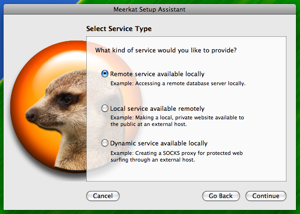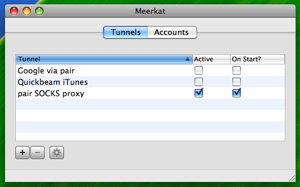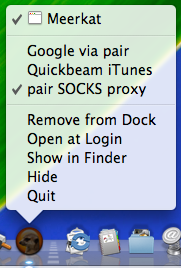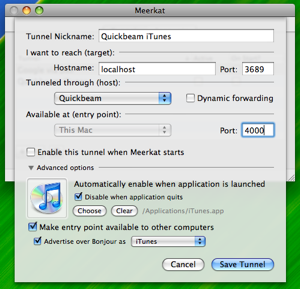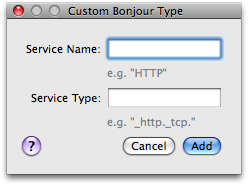
Yesterday I stumbled across a month old blog post advocating a hack to the excellent Twitterrific application, a client for the free Twitter service. The hack (Update: supposedly, but the point remains) removes the rather unobtrusive ads that the software developers introduced as a way to offset free use of the application. If you didn't want to see them, you could just register the application and they go away. The app didn't start out having them, but after it took off in popularity, the authors (you know, the people who put their time into the application's development and support) decided that this was a better model.
I should take a moment to point out here that as a whole, advertising in general strikes me in a negative light, but I didn't mind the ads in Twitterrific as it was great software and a fair tradeoff for my fifteen bucks.
Anyway, this hack and its associated "arguments" interested me particularly because my application Pukka is also a lightweight client for a free online service, so I left a comment. My initial argument was:
Just like a web browser, RSS reader, email client, FTP program, Aperture, iChat, blog editor… man, the nerve of those people trying to charge for a tool for receiving and delivering content created by others!
Also, I’m a Twitterrific user and I like the ads. Eventually I may pay for the app, but for now, they’re alright.
Try writing a program for which you charge little or nothing, getting a couple thousand users, then see what you do.
Since then, the discussion has gotten rather heated, as well as ludicrous in some cases, as acknowledgement and support of both software piracy and website attacking has been discussed. Seth Dillingham, whom I first got to know (at least virtually) last summer when I supported his bike ride for charity, posted a response and a challenge to users of Twitterrific: put your money where your mouth is. So I took him up and I registered Twitterrific. Money well spent!
If for no other reason (and there are plenty of other reasons), software piracy hurts developers from the support angle. Many users running an app means more support, particularly when a chunk of them are running a cracked version that could develop unforeseen problems. Users report stability issues on the popular software sites or, in the case of larger companies, call the support lines and demand resolution to their issues. I think John Gruber said it best when he wrote about the jailbroken iPhone phenomenon:
The mindset manifests in many forms, but what it boils down to is this: a sense of entitlement that users should be able to do unsupported things and yet still be supported. That it makes no sense to expect support after taking unsupported actions is why I’ve found it baffling.
Phooey. Get your copy of Twitterrific right here. And support software developers if you enjoy their products, but don't feel that you have the right to rip them off if you don't like how they do things. In fact, grab Apple's free development tools and write your own and let's see how it stands up.
Update: Craig at Iconfactory, the author of Twitterrific, weighs in with his take on the whole matter.

